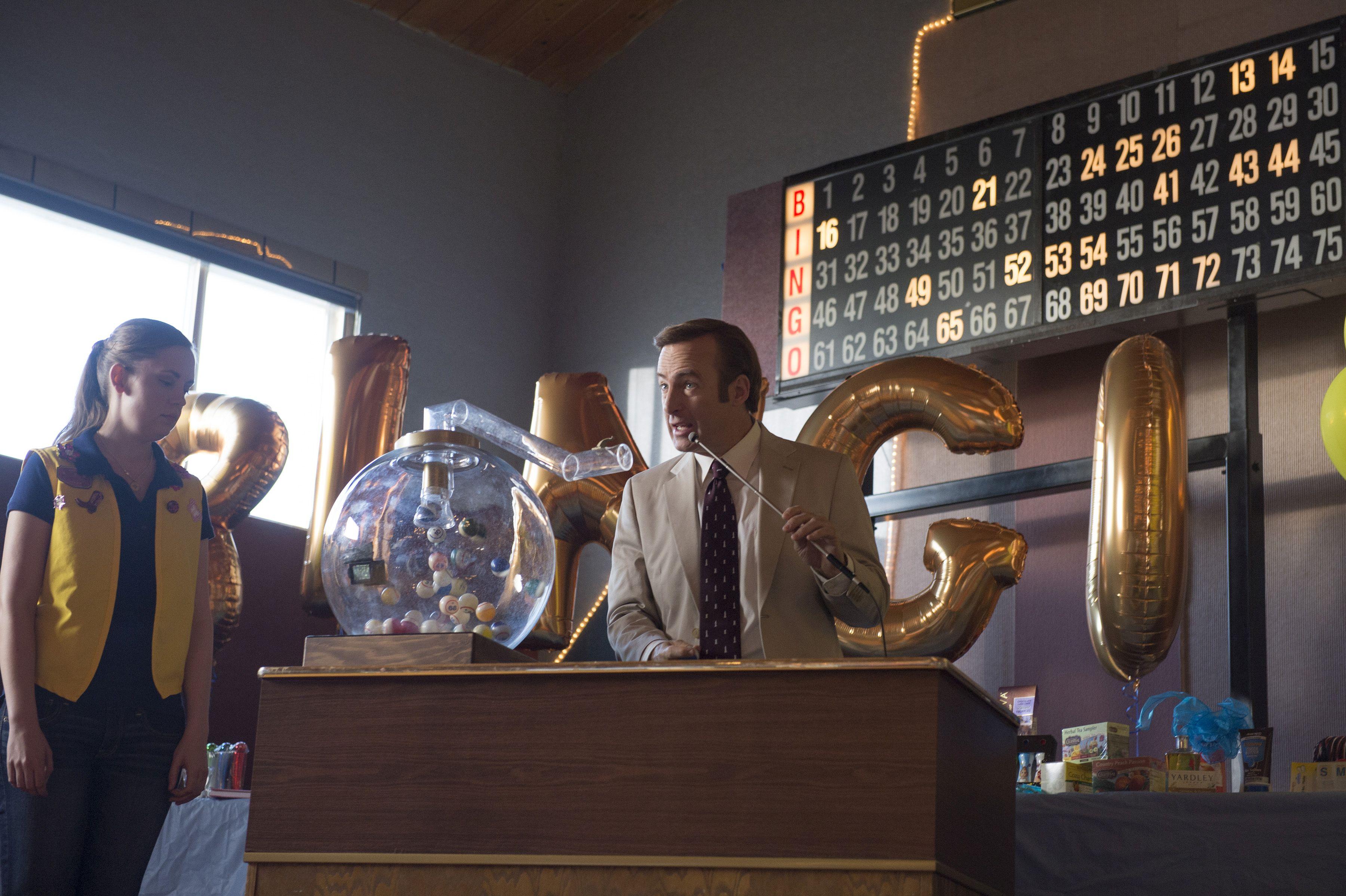 (This post contains spoilers for the first season of Better Call Saul)
(This post contains spoilers for the first season of Better Call Saul)
Throughout its first season, Better Call Saul has managed the near-impossible: being an excellent spin-off series. Such a feat requires a very careful balance. If a spin-off simply tries to capture the magic of the original work (Breaking Bad, in this case), then it is doomed to end up a pale imitation of the previous show. On the other hand, if a spin-off goes too far off in the other direction, it risks alienating the very audience that it needs to justify its existence.
Right out the gates, Better Call Saul establishes itself as a spiritual successor to Breaking Bad with its own distinct worldview. Like the previous series, Saul is heavily focused around its central protagonist, and its portrayal of Albuquerque extends from the character. Several plotlines have weaved in and out of each other in these initial ten episodes, but the show has never strayed too far from its central identity. Better Call Saul’s first season displays a confidence that is exceedingly rare in television, and ultimately stronger than the initial season of its parent show.
This could be due to how seasoned Vince Gilligan and Peter Gould are as TV writers. The unpredictable nature of the storytelling hearkens back to season 3 of Breaking Bad, a season with a famously improvisational structure. There is a feeling that Gould and Gilligan are less concerned with pre-conceiving a season arc than they are feeling out the shows beats and progressing the characters naturalistically. The final episode this year is one that we never would have expected based solely on the pilot, yet feels inevitable having watched throughout.
I’ve talked at length about the general progression of the season, so perhaps it would be good to delve into specifics. Take, for instance, the shift in the season’s central narrative. We’re introduced to Tuco (from Breaking Bad) and Nacho (played by Michael Mando, who is officially a series regular) right off the bat, and it is heavily implied that Jimmy McGill will work closely with Nacho on illegal schemes. However, as Gould and Gilligan began developing Chuck, Mike, and the wonderful Kettlemans, the need to bring in Nacho and push Jimmy’s fall to the dark side felt less necessary. They allowed the story to play out organically, even if it meant leaving one of their main cast members to sit on the sidelines for a year.
Also unpredictable-yet-retroactively-inevitable was Chuck’s revealed betrayal of his brother. This single scene reframes everything that came before: Jimmy was not just a former-grifter fighting for credibility against a jerk at his brother’s law firm, he was an incredibly hard-working lawyer who took complete care of his brother while said brother was preventing him from progressing professionally.
Unlike Walter White, who is sympathetic in early seasons but consistently makes selfish decisions, Jimmy is an actively likable protagonist. We are along for the ride and see first hand the lengths he will go to promote himself, get a case, and win that case. So to find out that his own brother is to blame for his professional inertia really hits us in the gut, especially given Jimmy’s inability to separate from the man entirely. We know from Breaking Bad that the character ultimately embraces “Slippin’ Jimmy” and rebrands as Saul Goodman, but that inevitability feels different than it did in Breaking Bad. Instead of a sympathetic man whose own poor decisions lead to his downfall, Better Call Saul is about an inherently good man who is stymied by inescapable outside factors and realizes that he must go against his nature to achieve success.
That being said, the end of season 1 can be seen as Jimmy’s equivalent to Walt turning down Elliot’s offer to pay for his treatment. Jimmy had a chance to take a career as a straight-laced lawyer and possibly become a partner at a law firm. But even as a partner, with a hefty paycheck and a nice corner office, he will always be Slippin’ Jimmy. Embracing that nature is a big middle finger to the people who disrespected him in the first place, but will also lead to his living purgatory at a Cinnabon in Nebraska.
The stakes in Better Call Saul are much lower than Breaking Bad, but the tragedy is just as powerful.